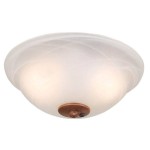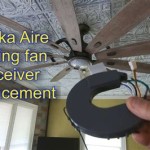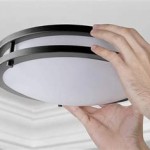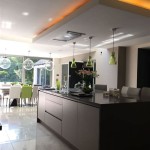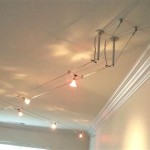Discover the Allure of Indirect Lighting Ceiling: A Guide to Elevate Your Home's Ambiance
Indirect lighting has emerged as a sophisticated and versatile lighting solution, transforming ceilings into captivating canvases of illumination. By strategically positioning light sources behind surfaces or diffusers, indirect lighting creates a soft, diffused glow that envelops spaces in a warm and inviting embrace. This captivating lighting technique offers a myriad of benefits, enhancing the aesthetics, function, and ambiance of your home.
Benefits of Indirect Lighting Ceiling:
Aesthetic Appeal: Indirect lighting paints ceilings with an ethereal glow, creating a sense of spaciousness and depth. It eliminates harsh shadows and glare, resulting in a harmonious and visually pleasing environment that complements any architectural style.
Functional Enhancement: By illuminating walls and surfaces, indirect lighting provides ample ambient light without straining the eyes. It creates a uniform distribution of light, making it ideal for tasks such as reading or working in specific areas.
Mood-Setting: The diffused nature of indirect lighting evokes a sense of tranquility and relaxation. By adjusting the intensity and color temperature, you can create a range of ambiances, from cozy and inviting to energizing and focused.
Types of Indirect Lighting Ceiling:
Cove Lighting: Recessed fixtures hidden behind a cove - a shallow recess in the ceiling - cast light upwards, illuminating the ceiling and reflecting it onto the walls.
Valance Lighting: A similar concept to cove lighting, valance lighting features a horizontal valance instead of a cove. It provides a diffused and uniform glow along the ceiling's perimeter.
Cornice Lighting: Cornice molding with built-in LED strips or fluorescent tubes offers an elegant way to create indirect lighting. It accentuates architectural details and adds a touch of sophistication to the space.
Planning and Installation:
Ceiling Height: Indirect lighting is particularly effective in rooms with high ceilings, as it provides ample space for light to bounce and distribute evenly.
Surface Material: The surface behind the light source plays a crucial role in the quality of the light. Light-colored, reflective surfaces enhance the diffusion, while darker surfaces absorb more light.
Fixture Placement: Careful planning is essential to achieve optimal light distribution. Fixtures should be spaced evenly to prevent uneven illumination.
Conclusion:
Indirect lighting ceiling is an exquisite lighting solution that transforms spaces into captivating sanctuaries. Its diffused glow, aesthetic appeal, and functional benefits make it an excellent choice for homeowners seeking to enhance the ambiance of their homes. By incorporating indirect lighting into your design scheme, you can create a harmonious, inviting, and unforgettable living environment.

Ceiling Light Beech 20 X Cm With Indirect Lighting

Ceiling Lamp Indirect Lighting Separately Dimmable Smarthome
Ceiling Strip Lights Flexfire Leds

Indirect Lighting Goes Anywhere Some Examples Q Blog

Indirect Lighting With Paulmann Led Strips

Indirect Lighting Is An Excellent Way To Create A Calm Atmosphere

Indirect Lighting Ideas To Transform Your Home Tisva

35 Cove Lighting Ideas For Your Home All Types Of Budget

Ledrise High Performance Led Lighting Cove Guide With Strips

Indirect Lighting Goes Anywhere Some Examples Q Blog
Related Posts


